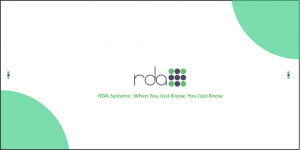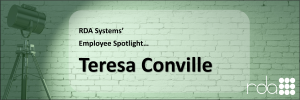Accounting software is meant to make managing and running your company more efficient while giving you visibility into the company. Technology has advanced significantly and has become an important aspect of managing companies of various sizes. Different organizations may need different accounting software depending on their nature.
As your company evolves, you may find that your current accounting software is no longer serving you well. Once you’ve outgrown that system, you should consider acquiring a new one to get rid of error-prone and time-consuming tasks. Here are 9 signs that your accounting software is holding you back:
1. Lack of efficiency
Technology has increased efficiency in handling many tasks. Therefore, if you are spending too much time on paperwork and manual data entry, it could be a sign that your organization has outgrown its business management system. This also heightens risk of errors.
It is important for your accounting software to keep up with increase in growth. Many organizations rely on accounting software to boost efficiency by automating and streamlining business processes throughout the organizations.
2. Poor visibility across your organization
As businesses grow, it can become more difficult to monitor activities. With spreadsheets all over the place and employees handling various tasks, finding information can be exhausting. Moreover, your company’s pile of data and files will keep growing.
Accounting software that is compatible with your specific needs allows you to find information instantly across different levels or departments of your company. Therefore, you can make decisions based on accurate real-time data. An ERP solution provides critical insight into things like reporting, forecasting, and financial management while a warehouse management solution offers additional insight into inventory management and stock levels.
3. Software incompatibility
As your company grows, you may have to leverage various systems for different purposes. With numerous sources of information, the risk of incorrect information is significantly higher, hence the need to manage critical data across multiple sources. Integrating your systems increases visibility, makes information more centralized, and enhances organizational efficiency.
4. Difficulty in managing compliance
Are you facing issues maintaining required levels of compliance? Upholding specific regulations in some industries can be very costly. If your company is spending too much money to maintain compliance, it could be a sign that you have outgrown your system.
Moreover, you may find that the system you are using is struggling to handle your current accounting needs. Nowadays, transparency has become very important as compliance becomes more and more complex. Therefore, it is essential to have a system that handles these issues and alleviates your burden.
5. Heavy reliance on spreadsheets
Despite the importance spreadsheets hold, they are still difficult to maintain and prone to errors. If your organization relies heavily on spreadsheets, you should check whether the accounting system you are using is actually meeting your needs. Your accounting system should work efficiently without relying on external supplements.
6. Incompatibility with employees
Whether it’s due to younger employees or new management, your current accounting software may be incompatible with your new demographic. For instance, an accounting system that does not support remote work can hinder workflow for employees that want to work from home.
7. Lack of support
Old systems may have less support as publishers stop supporting them hoping for users to upgrade to newer versions. As a result, you may be forced to adopt a new accounting system.
Besides the lack of support, old systems can be outdated in terms of security and capabilities. Due to technological advancements, this can create huge gaps between the organization’s legacy accounting system and the modern ones currently available on the market
8. Data collection, analysis, management and reporting is tedious
If your organization is manually navigating through numerous spreadsheets and correcting data entry errors and duplicates, you should consider upgrading your accounting software now. Your ERP system should have effective, rigorous, data entry, reporting and analysis, with regular redundancy checks to ensure it is useable and accurate.
Upgrading to an ERP system with highly effective accounting solutions ensures fewer human-input and accounting-data errors.
9. Your expansion efforts are failing
Your accounting software and IT system should be able to accommodate new business operations. Digital infrastructure should have the capability to support expanding needs and interests. From project management and distribution to logistics, your accounting systems should allow you to explore and take advantage of new ventures.
The bottom-line
If you’ve noticed these signs, it is likely that you’ve outgrown your old accounting system. It is essential to have an accounting system that changes with your evolving business to ensure it serves all your needs. Using an old accounting system holds your organization back in terms of money and growth, hampering growth.
Acquiring a new accounting system boosts your company’s competitive advantage to new levels. With RDA’s innovative ERP software being more sophisticated and capable than ever, it may be time to make a switch. RDA provides School District Suite and Municipal Suite solutions to give your organization a competitive edge. From accounting software and IT services to data analytics and business management, we are committed to helping you transform the manner in which your organization works.





